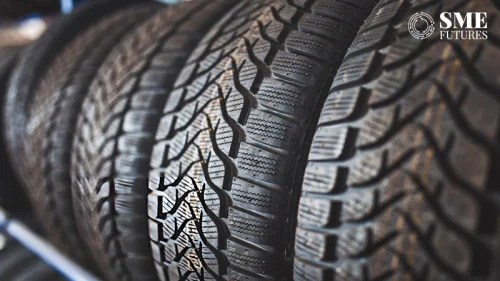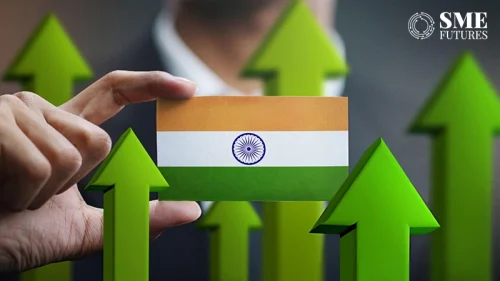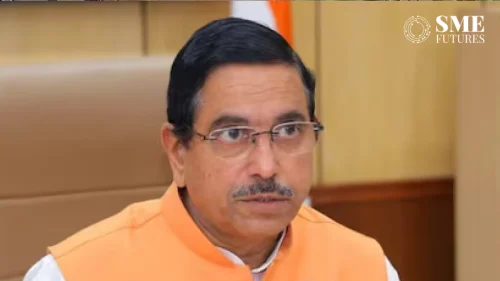India will need a comprehensive ecosystem that supports cleaner technologies, including electric vehicles, to meet its vision of cutting emissions, reduce dependence on imported fuel and achieve leadership in clean technology, according to Maruti Suzuki India managing director and CEO Kenichi Ayukawa.
The company on Wednesday unveiled its electric concept compact SUV, e-Survivor at the Auto Expo, Greater Noida while showcasing a range of technologies to accelerate electrification of powertrains in India, ahead of its planned launch of an electric vehicle in the country by 2020.
The e-Survivor concept demonstrates Maruti Suzuki’s efforts in the direction of electric mobility and presents an innovative, futuristic vision, the company said.
Ayukawa said that products alone will not be enough to realise India’s grand vision of bringing down emissions substantially, reduce dependence on imported fuel, and secure a leadership position in clean technology capability.
“India will need a comprehensive ecosystem that supports cleaner technologies, including electric vehicles,” he said while unveiling the concept e-Survivor at the expo.
That ecosystem will include local production of components, capabilities for battery manufacture and recycling. Of course, we will need a vehicle charging infrastructure of a scale and size that matches India’s needs, Ayukawa added.
“In our understanding, the vision of cleaner technologies is not import and assemble. Rather, it must go hand in hand with the mission of Make in India,” he said.
Stating that Maruti Suzuki India (MSI) is committed to help create this ambitious ecosystem, Ayukawa said that the company’s parent, Suzuki Motor Corporation, has taken a bold step forward by setting up India s first lithium ion battery manufacturing plant in Gujarat, in partnership with Toshiba and Denso.
“We are actively studying the factors that will improve acceptance of electric vehicle (EVs) and what consumers across India desire from EVs,” he added.
MSI is also examining various options to support vehicle charging infrastructure in the country, he added.
Sourcing raw material, vehicle maintenance, skilling and reskilling of people, disposal and recycling, will all be critical parts of the mega ecosystem, Ayukawa said.
“Our approach will cover the entire lifecycle of an EV and help build a clean and sustainable future for India’s automobile industry,” Ayukawa said.
Maruti Suzuki will launch its first EV in India in 2020, he said, adding that, “At the same time, we recognise that there is a larger vision behind electrification of powertrains.”
Commenting on the electric concept compact SUV, he said, “Concept e-Survivor symbolises our commitment to clean technologies of the future.”
He said the concept represents MSI’s future FACE – four-wheel, autonomous, connected and electric.
“In this concept SUV, the proud four-wheel drive heritage of Suzuki combines with electric capability, to offer fine control and outstanding mobility. e-Survivor is equipped with autonomous driving capabilities,” Ayukawa added.
MSI is also showcasing working model of its next generation Suzuki Hybrid system.
“In our holistic approach to cleaner technologies for India, hybrid has tremendous potential and significance. It will move alongside the EV vision,” he said, adding improving efficiency of conventional engines with hybrid technology can reduce emissions substantially, and help bring down India’s fuel imports.
“More important, hybrid can start working for us almost immediately, as the ecosystem for it is largely in place,” Ayukawa said, adding till the time EV market matures in India, many millions of conventional Internal Combustion Engine (ICE) vehicles will be sold in the country.
“Deploying hybrid technology on the large number of ICE vehicles will bring massive benefits, in terms of both emissions and fuel saving. Here again, Maruti Suzuki is excited to pursue and develop the hybrid option to make for a cleaner India,” he added.
Quick Links:
News
GeM conducting registration drive for Indian sellers at IITF
India rated fastest growing G20 economy with GDP growth projected at 7% for 2024
India emerges as global investment powerhouse, driven by reforms and tech boom
Rs 27,000 crore Assam semiconductor plant to be game-changer in India’s chip ecosystem
NITI Aayog’s WEP and Urban Company join hands to empower women led MSMEs in beauty and wellness sector
India’s spice exports projected to reach $10 billion by 2030
Centre aims to develop Odisha as a major hub for renewable energy: Union Minister Pralhad Joshi
Food waste crisis fuels sustainable practices across APAC food & beverage industry: Report
India’s sports market to reach $130 bn by 2030, create 10.5 mn jobs
India’s GDP to grow 6.5-7% through FY27 over infra, consumption push: Report









